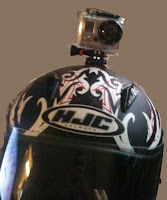 Those of us who are public officials and are entrusted with the power of the state are ultimately accountable to the public. When we exercise that power in public fora, we should not expect our actions to be shielded from public observation. 'Sed quis custodiet ipsos cutodes' ("Who watches the watchmen?"). ... [The encounter] took place on a public highway in full view of the public. Under such circumstances, I cannot, by any stretch, conclude that the troopers had any reasonable expectation of privacy in their conversation with the defendant which society would be prepared to recognize as reasonable.
Those of us who are public officials and are entrusted with the power of the state are ultimately accountable to the public. When we exercise that power in public fora, we should not expect our actions to be shielded from public observation. 'Sed quis custodiet ipsos cutodes' ("Who watches the watchmen?"). ... [The encounter] took place on a public highway in full view of the public. Under such circumstances, I cannot, by any stretch, conclude that the troopers had any reasonable expectation of privacy in their conversation with the defendant which society would be prepared to recognize as reasonable.-- Circuit Court Judge Emory A. Plitt Jr., ruling for the defense in the case of Anthony Graber, a motorcyclist who used a helmet camera to film a plainclothes trooper after being stopped for speeding in Maryland. Graber then posted the video, which shows the officer approaching him with his gun drawn, to YouTube.
Plitt also dismissed a charge of possession of "a device primarily useful for the purpose of the surreptitious interception of oral communications," (the helmet camera), saying it would render illegal cell phones and other handheld recording devices used by many.
The 27 September 2010 decision is available online at http://tinyurl.com/36dg623
No comments:
Post a Comment